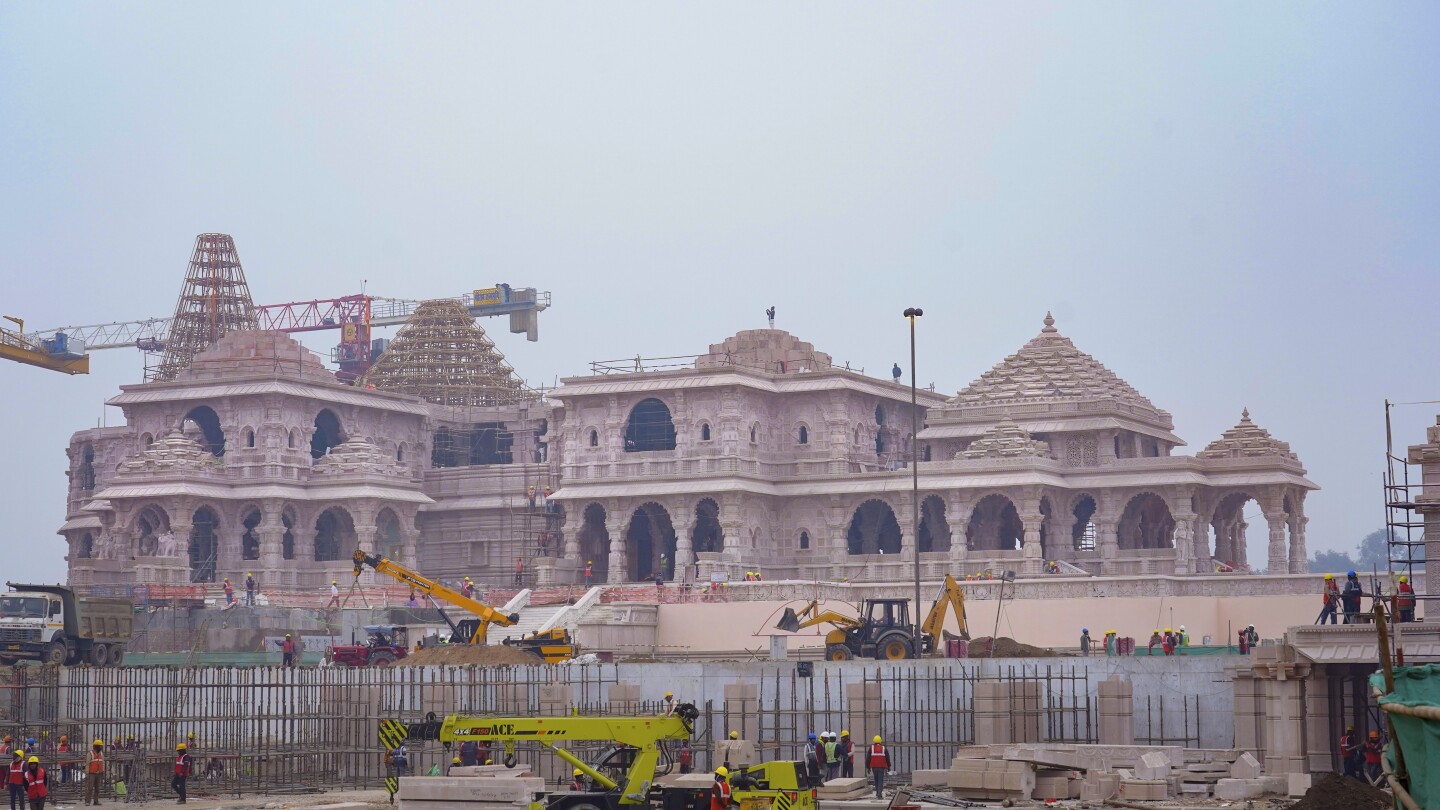Three decades after Hindu mobs tore down a historical mosque, Indian Prime Minister Narendra Modi will attend the consecration of a grand Hindu temple at the same site on Monday in a political move to boost his party ahead of a crucial national vote.
Experts say the temple, dedicated to Hinduism’s most revered deity Lord Ram, will cement Modi’s legacy — enduring but also contentious — as one of India’s most consequential leaders, who has sought to transform the country from a secular democracy into an avowedly Hindu nation.
“Right from the beginning, Modi was driven by marking his permanency in history. He has ensured this with the Ram Temple,” said Nilanjan Mukhopadhyay, an expert in Hindu nationalism and author of a book on Modi.
Many see the temple’s opening as the beginning of the election campaign for Modi, an avowed nationalist who has been widely accused of espousing Hindu supremacy in an officially secular India. Modi’s Hindu nationalist party is expected to once again exploit religion for political gain in the upcoming national elections in April or May and secure power for a third consecutive term.



First, I just want to say that I don’t agree with your premise (I don’t think Christianity is a common feature of successful democracies), but now importantly, I don’t think your sentiments disagree with anything I said.
I don’t mind if someone’s ideology is shaped by faith. My lament was about ethno/religious supremacy.
My point is, as an example, democracies with dominant religion as Christianity has its religious imprints within the governing body. A simple example to prove this is that all public holidays mostly are serving the dominant religion. (I didn’t say Christianity is a common trait of successful democracies).
Wouldn’t etho/religious supremacy apply here ? Why do you have the lens when you look at a country like India ?
I think we might be talking past each other in some way.
Ethno/religious supremacy is very different than religious influence.
You can have a political identity that is shaped by your religion and be fully supportive of the rights of immigrants and other religious groups, etc. That’s advancing the belief that your religion or ethnic group should have sole authority over state power.
Germany’s Christian Democratics: religious, but not supremacist. Germany’s National Socialist German Workers party: not religious, very supremacist.
Again my point and you still haven’t answered. Going by your words, why do you think in India, people are not “supportive of rights of immigrants and other religious groups” ?
They probably are most culturally, religiously, linguistically etc diverse than any other country in the world. Yet minor issues aside they have decades of peaceful co existence.
I assume you are not from India, so why would you look at a country like that and have an opinion that they are heading to something bad. I’m genuinely curious.
Edit 1 - To add another point they have the most population in the world even. So, arguably, you are looking at the most complicated, functioning democracy in the world.
Did you read the article? I’m not talking about the country of India: I’m talking about Narendra Modi and the BJP. The article is about how he’s a Hindu nationalist and his political coalition has built their political success on persecuting Muslims.
I’m talking about Prime Minister Modi. And I’m not calling him a Hindu supremacist because he’s Hindu: it’s because he’s a supremacist.